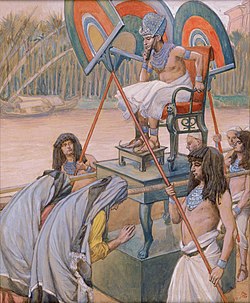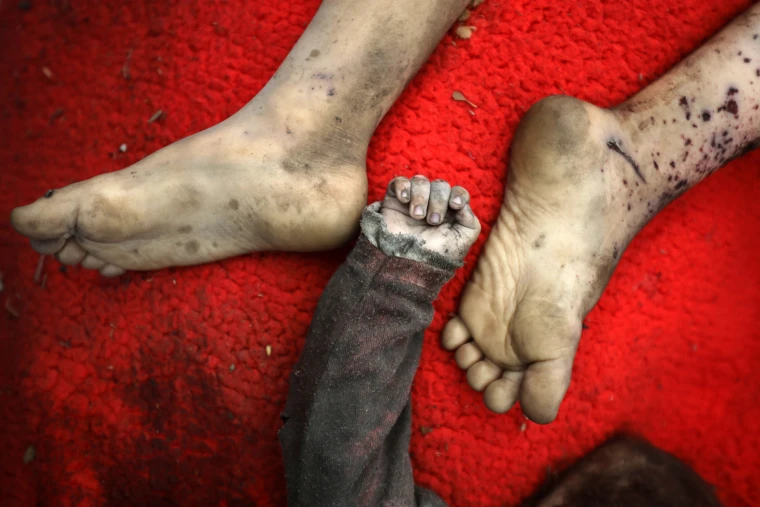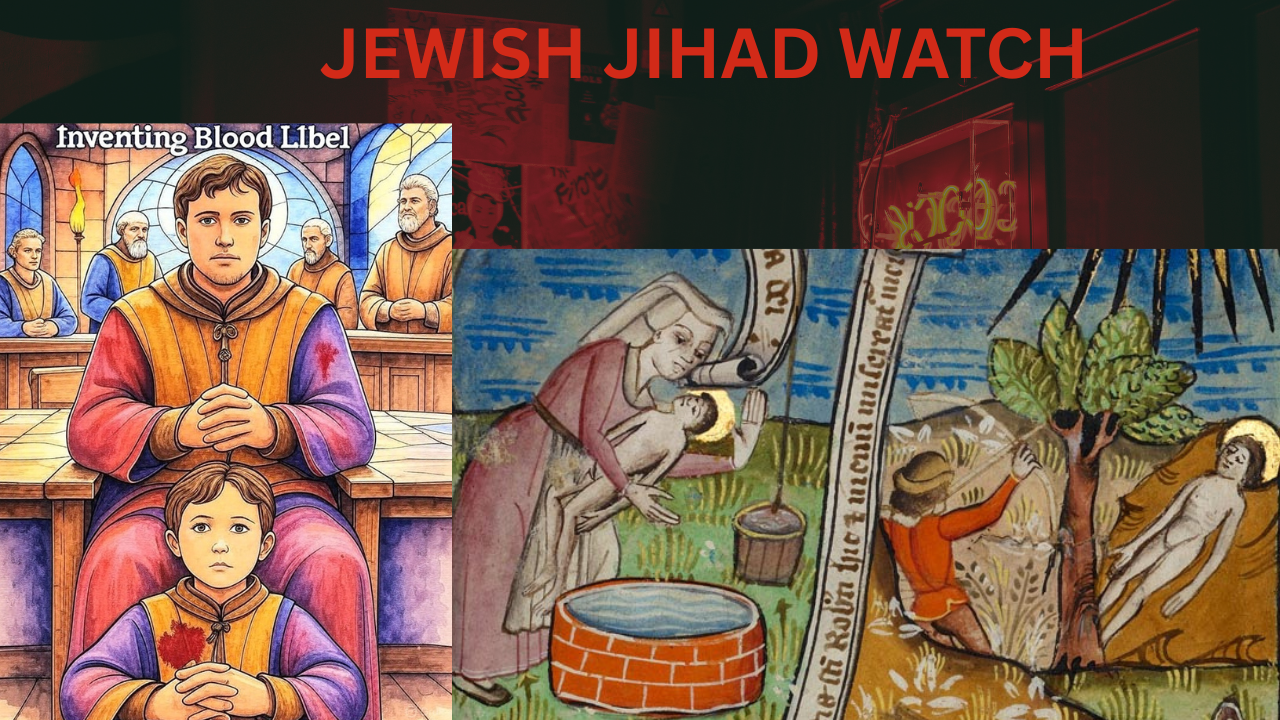One of the most famous and oldest traditions in Judaism is Passover. Passover is the celebration of the story of Exodus—Jews leaving Egypt and going into the Sinai desert led by a rebel called Moses. During Passover, Jews remember the heroic acts of their ancestors and reminisce through prayers and rituals about the suffering they endured to escape slavery under the crushing iron fist of Pharaoh.
Jews religiously celebrating the violent act of a rebel who led a major liberation struggle against a mighty oppressive power and not calling him a terrorist sounds like a dark, ironic comedy by Woody Allen—until you realize it’s not. This is as real as it gets. However, it was 3000 years ago, and the roles were reversed: Jews were the Palestinians of today.
For outsiders with a strong, traditional religious outlook on the world and without a deeper understanding of the symbolism behind Jewish holidays, Passover is a purely religious event. For Jews themselves, however, Passover represents much more than a religion. It represents the liberation of their people and the birth of a national identity, unique borders, and a covenant that are remembered long after the grandiose and prestigious, mighty ancient Egypt has been gone and erased. For the Jews, Passover is the 4th of July and Gettysburg rolled into one with a divine seal—a seal that has refused to be broken for thousands of years in the minds and hearts of the Jewish people due to its embedding in their consciousness through ritualized nationalism in yearly celebrations.
Passover is a spring festival and lasts about seven days. Jews typically mark this occasion with a special service called Seder—often translated into English as “Order.” The seder is a table where each family and their friends gather around in their homes to have a delicious meal. Unlike the Christian tradition of the Thanksgiving (US) meal or the Islamic tradition of Eid al-Adha, on the seder table, God is rarely mentioned. Instead, Jews read the Exodus story from a book called the Haggadah. Each chair around the seder table has a soft and comfortable cushion that the occupants can lean back on to remind them how free they are. The book Haggadah is not your average religious book; it’s a nationalistic, rabble-rousing political manifesto with explicit endorsement of violence and genocide as methods of liberation. If you were reading it in Arabic, you would swear it was even too strong to be in Hamas’s charter. For instance, the “Pour Out Your Wrath” passage from the Haggadah, which is usually read at the end of the Seder, is a terrifying, explicit call for vengeance against non-Jews.
“Pour out Your wrath upon the nations that do not acknowledge You, and upon the kingdoms that do not call upon Your Name. For they have devoured Jacob and laid waste his habitation. Pour out Your indignation upon them, and let the wrath of Your anger overtake them. Pursue them with anger, and destroy them from beneath the heavens of the L-rd.”
Even though these passages, which are always read during Seder, are truly troubling due to their casual endorsement of death and destruction upon people perceived as enemies or opponents of the Jews, they pale in comparison to the origins of the main holiday itself.
The background story of Passover is one of violence, death, vengeance, and bloody wrath. The name Passover becomes self-explanatory when you fully immerse yourself in the terrifying story behind this concept. The name denotes the blood of a lamb being smeared on the doorposts of Jewish homes so that an angel, sent to specifically and exclusively murder Egyptian children—goyim children—did not inadvertently kill Jewish babies. So, Jews painted blood on their doorposts; the angel came, passed over the marked homes, and entered the unmarked ones, butchering Egyptian children with divine wrath. This unspeakable event was framed in religious themes and presented as a justifiable means of retribution for similar earlier transgressions by Pharaoh against the Jewish people.
The Birth of Blood Libel

Passover is preceded by a blood libel. It started with the blood libel that Pharaoh was the epitome of evil, hell-bent on murdering the most vulnerable among us: children. The proof of his evilness, they said, manifested in his desire to murder newborn Jewish male children. The blood libel smear, as Jews framed it against Pharaoh, worked brilliantly.
The exodus out of Egypt to Palestine, in which not only did Jews, with the help of God, decimate their enemy, Pharaoh, but they also plundered Egypt of gold and cattle. So, if you go back to that point in time, Passover and the blood libel were the catalysts for the Torah and the Jewish people. Everything Jewish that exists today exists because of blood libel and Passover.
Therefore, without the blood libel, there wouldn’t have been a need to send baby Moses in a basket to the River Nile, where he was miraculously found—ironically, by the wife of the same man who wanted to murder him and his fellow Hebrews. Without Moses, there would have been no Exodus. No Exodus, no Torah; and without the Torah, no Judaism. And without Judaism, there would be no Jews and Jewish people; there would certainly be no Israel. So, you see, paradoxically, blood libel is central to the existence of Israel, the history of the Jewish people, and Judaism itself. Take away the blood libel, and there is nothing left. Therefore, without moral and ethical consideration and purely from a pragmatic and strategic point of view, we can conclude that blood libel is useful as a propaganda instrument for creation, and Jews were the first pioneers in using it for the creation of myths, nations, ethnicities, and civilizations.
So, why do the Jews hate the term “blood libel” and today call everything against them blood libel when they are at the receiving end of it? Because they know it works. The narrative of Pharaoh targeting Israelite male infants functioned as strategic propaganda against his rule, both in its ancient context and through modern interpretive lenses.
The infanticide decree resonates with modern audiences as a metaphor for genocide and authoritarian overreach. It has been invoked in discussions about state violence, reproductive rights, and resistance movements, framing Pharaoh as a timeless archetype of oppressive regimes.
Thus, out of this blood libel, Jews made a religion. Because it was the blood libel and the subsequent Passover that paved the way for the rise of Moses and the revelation of the Torah. The biblical narrative in Exodus describes Pharaoh’s escalating decrees against the Israelites, culminating in the command to kill all newborn Hebrew boys to prevent the rise of a deliverer, Moses.
The Midrash tells us that what pushed Pharaoh to take this evil measure was fear of the future. It explains that Pharaoh’s astrologers foresaw the imminent birth of a male child destined to save the Israelites. This prediction triggered fear in Pharaoh, which led him to target male infants specifically, hoping to eliminate this future redeemer. This sounds familiar, right? We hear this fear of unborn or newborn Palestinian babies repeated by Jewish Zionists to justify their murder by Israel—that two-year-old Palestinian boys can be murdered by Israel to prevent future massacres of Jews, like October 7. Because every Palestinian, according to Jewish rabbis, is a future terrorist.
This is the secret. In the ancient world, a man’s manliness was determined not by physical attributes, as people tend to say these days, but by what he did on the battlefield. He was defined more by the other men he slaughtered, mano a mano, and the territories he conquered, and less by immutable characteristics. What was unmanly and beneath a man were women and children. A man who killed children was not a man in the eyes of the ancient world. Killing children or women was considered the ultimate degradation of manliness—man’s honor, integrity, and ego.
If somebody said that a man kills children, no matter his status in society, it was the end of that man’s future in the ancient world. That meant the man had no honor, no integrity; he was beneath women and children, even lower than animals. The Jews knew of the effect of blood libel in the ancient world and said Pharaoh was killing Jewish children. And this worked so much that it made God incensed and angry at Pharaoh; He declared war on him. This was the moment, apparently, that God decided to get rid of Pharaoh, according to the Bible. That is why Pharaoh died in the sea—the worst death an Egyptian could be subjected to.
Blood Libel Begets Blood Libel

The blood libel became so effective that it was repeated throughout history in different timelines and epochs in the ancient world. Christians later used the Jewish blood libel tactic to get rid of the Jews by accusing King Herod of murdering babies in the Bethlehem vicinity to prevent Jesus from being born. And if this wasn’t enough, the crucifixion of Jesus by Jews led to almost 2000 years of persecution of Jews.
The Israelites’ biblical account of Pharaoh ordering the killing of Hebrew male infants (Exodus 1:15–22) became weaponized in medieval and modern antisemitism through the blood libel—an accusation that Jews murdered Christian children for ritual purposes. This narrative inversion transformed Jewish victims of oppression into imagined perpetrators, perpetuating persecution. Below is the evolution and mechanisms of this slander:
The Exodus story frames Pharaoh as a tyrant targeting Jewish children, but medieval Christians reinterpreted it to accuse Jews of analogous crimes. By the 12th century, myths emerged alleging that Jews reenacted the crucifixion of Jesus by ritually murdering Christian boys, often during Passover. This tied the blood libel to the Exodus narrative’s timing and themes of blood symbolism (e.g., lamb’s blood on doorposts) but inverted its moral framework.
From this moment forward, the blood libel was relentlessly used against the original inventors: the Jews. They were ostracized from medieval to modern times. The Jews were frequently accused of killing and drinking the blood of Christian children for religious rituals in order to justify their expulsion and sometimes the appropriation of their property. It’s the same precepts that gave rise to accusations of Jews poisoning the wells of Christians to kill them. It was said that Jews were carrying and spreading diseases. Now, the people spreading these heinous lies knew they were fake—or at least not something the Jewish community suddenly came together and decided to do collectively. But it didn’t really matter because that was beside the point. The point was appealing to the people’s most basic and raw emotions in order to get rid of your competitor, whether in religion, business, or politics, and it was effective.
And that’s precisely what happened. The Jews were constantly chased and driven out of Europe and the Christian world because the blood libel, which they themselves invented and made a religion out of, was now used retroactively against them, and the result was devastatingly effective.
This is how the ADL, the premier Jewish organization, defines blood libel: “The ‘blood libel’ refers to a centuries-old false allegation that Jews murder Christians—especially Christian children—to use their blood for ritual purposes, such as an ingredient in the baking of Passover matzah.” It is a false allegation without substantiation; that’s how the ADL defines it, and everyone with a sane mind agrees with them. It has “libel” in it, which makes it instantly understood by everyone as a fake smear.
Truth vs Libel

However, today, when we talk about the number of Palestinian children slaughtered in Gaza by the Jewish state, the term “blood libel” is evoked by those cheering for the holocaust, even though—according to their own definition—it is not really a blood libel since it’s true and we can actually verify it. We have babies whose heads are blown off by the Jewish state being held up by their fathers. Yet we are not allowed to say it because Jews find it antisemitic and find ways to shut us down. Because of the widespread instrument of cancel culture, many of us are afraid to death to utilize this ancient secret weapon. Jewish intellectuals and rabbis have found clever ways to defang this ancient secret propaganda tool by using obviously grotesque and irrational examples, such as Jews crucifying Christian children in medieval times, as a reason why saying Jews are murdering children in Gaza is antisemitic. These two statements are not the same. In context, they are totally different, factually incorrect, and logically paradoxical to be used against each other to shield the Jewish state from accountability for blowing off the heads of children or starving them to death. The same people who make such absurd claims, in the same breath, go and defend Israel slaughtering more than 30,000 babies. You have seen presidents, congresspeople, influencers, scientists, and so-called experts line up behind Israel’s right to murder children. In every instance, they invoke “Israel has the right to defend itself,” and in that right, it’s entitled to exterminate children. Because of October 7, they insist, Israel is permitted—legally, morally, and ethically—to murder Palestinian children and erase Gaza.
Lawyers representing the Jewish state literally contested this at the International Criminal Court. Entire Western leaders, including Kamala Harris and Joe Biden, defended Israel’s right to blow children apart. I have been constantly watching and reading the mainstream media’s coverage of the Gaza genocide, and I have yet to see a single one of them oppose what Israel has been doing on legal, moral, or ethical grounds. Now, the question is: if the supporters of the genocide are permitted to defend the acts of genocide legally and morally with pride and without consequences, why can’t we, the defenders of those subjected to the holocaust, stand our ground and defend the use of extreme rhetoric legally, morally, and ethically? If one is encouraged and heralded as a hero for defending the slaughter of children through legal, moral, and ethical grounds, one should be elevated even more for justifying extreme and uncomfortable rhetoric to condemn and warn about the evilness in slaughtering children like chickens.
Because our intent is not to blame all of the Jewish people, but just to use the Jewish name to force the few bad Jews to stop slaughtering children. If it can be argued at the International Court that the incineration of two or three children is permitted—a two-to-one ratio—in order to take out “one terrorist,” why is it forbidden for us to say Jews are murdering children and only restricted to saying “Israel” to avoid crossing the antisemitic threshold? Jewish Israelis make up half of the Jewish people worldwide—way more than the ratio defenders of Israel use to justify the slaughter of children. The ratio is one to one, which, based on their ratio logic, makes it perfectly okay—legally, morally, and ethically—to say the Jews are murdering children. It’s in this ethical and legal framework that we are permitted to say Jews are slaughtering babies like chickens without being labeled antisemites.
Also, the defenders of the holocaust frame this two-to-one ratio as the only effective way to defeat Hamas. They say slaughtering two children for one Hamas operative is not only legally permissible but morally noble, as it leads to the defeat of Hamas, which is the stated intent of the Jewish state. Similarly, the use of blood libel rhetoric is the only effective way to shame and name Jews to stop the slaughter of Palestinians, which justifies its usage on moral and ethical grounds.
If today we all say, “Jews are murdering children in Gaza,” it is a matter of fact, not a smear or libel, and an effective way to stop the slaughter of children. Because Jews know how effective this is and how it shakes the collective human consciousness, they prevent it from spreading through the masses by censorship in media and social media. Any mention of that phrase makes your post disappear and your account suspended and removed. Think of the “blood libel” term as the “I’m an alcoholic” term ritually repeated at AA meetings. These people are addicted to alcohol, and they know they are addicted. Yet they can’t stop on their own. However, after a few AA sessions, professionals observed tremendous change in the addictive behavior of the participants and their willingness to not only admit the problem but to completely stop drinking.
By just repeating the “I’m an alcoholic” mantra rhythmically with their colleagues, most AA people get transformed—transformed from being passive and totally dependent on the substance, unable to function at all as humans, to an active force with immense will to abstain from the addictive substance. It’s the same effect we feel in religious settings. Now, this works both ways.
There’s a tremendously powerful spirit when we come together and raise our voices collectively, and they know it. That is why they cancel anyone who calls them names. Because by naming something or someone collectively, it affects what mystics and psychoanalysis refer to as the sources of human consciousness. This means you and I, from different continents and cultural-historical backgrounds, start to notice certain patterns at the same time, which then leads us to seek out the whole pieces together, identify them, name them, and then use them as a solution for our problems.
As a Strategic Tool and Not as an Instrument of Hate

What is our responsibility in these trying times and at this critical juncture? And remember, it cannot be the old virtue signaling, the same old platitudes, and repetition of Hasbara pre-approved terms like “Zionism” and “colonialism” crap. Our responsibility is to say it out loud—not because we hate our Jewish brothers and sisters, but because, number one: it’s a matter of fact, and number two: it works. Because screaming “Zionists” and “Zionism” doesn’t work, as people outside of academia and the media have no clue what it is. Zionism sounds like a scientifically branded, innocent, nice term with no glaring negative connotations. Therefore, there is little attached to Zionism. If you go today to your local grocery or coffee shop and say “Zionism,” few would have any idea what the heck you are talking about. What does that even mean? Nobody has an idea of what that is.
However, if you go to the furthest mountains in Afghanistan or Russia or even the Brazilian forest and say “Jews” and mention blood libel, people know about it and understand it because it is effective. Everyone gets it. That’s why these institutions and activists need to adopt the blood libel strategy—not to hate or harm Jews, but to help Jews themselves avoid the eternal guilt of continuing to commit the same holocaust that they are victims of against Palestinians, to stop them from slaughtering babies in Gaza, and to help the Palestinian people and save them from the onslaught. So, in using this ancient secret method of blood libel, we are actually doing humanitarian work by saving lives. Because if it was good for the ancient people, and Jews in particular, managed to mold a religion and national identity out of it, then why isn’t it good for all of us to use it in order to help stop the bloodbath in Palestine?
